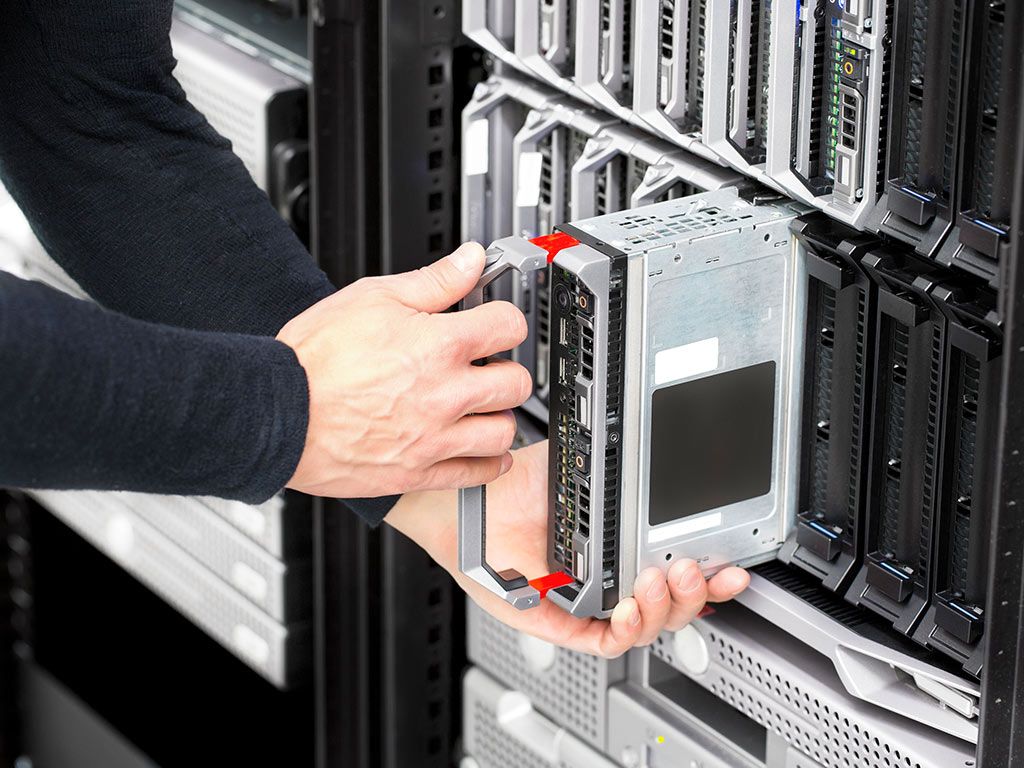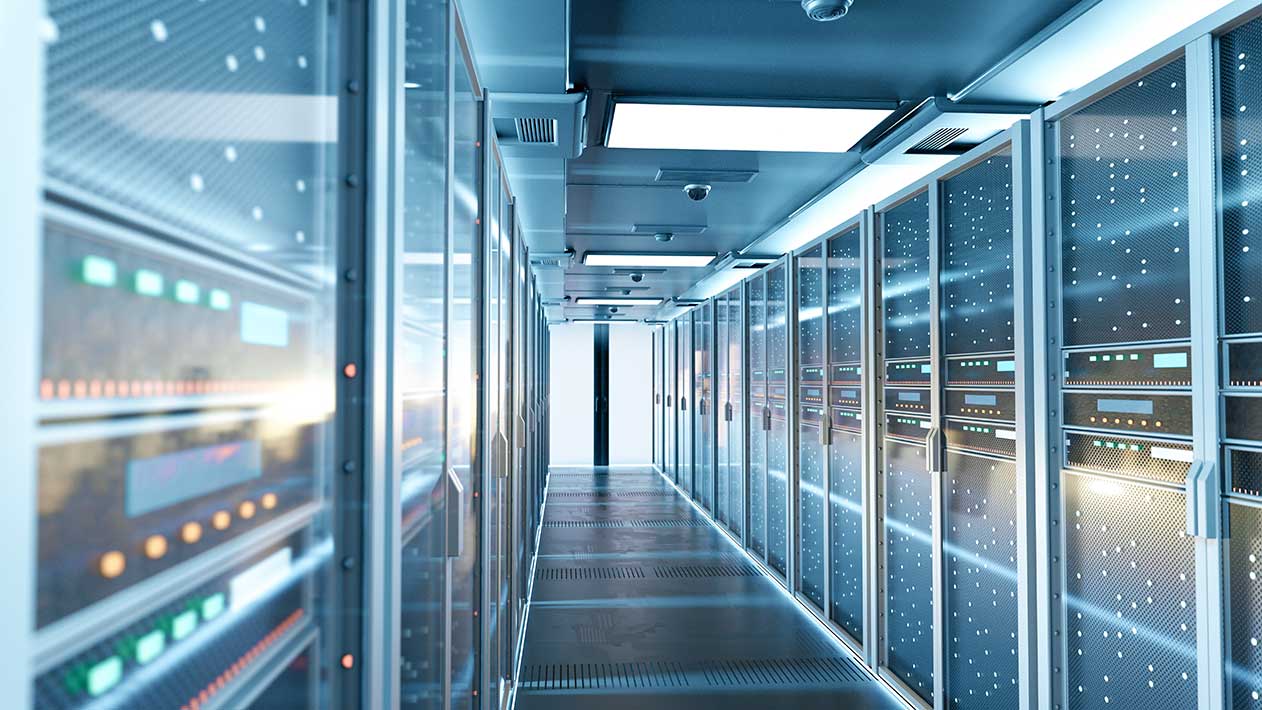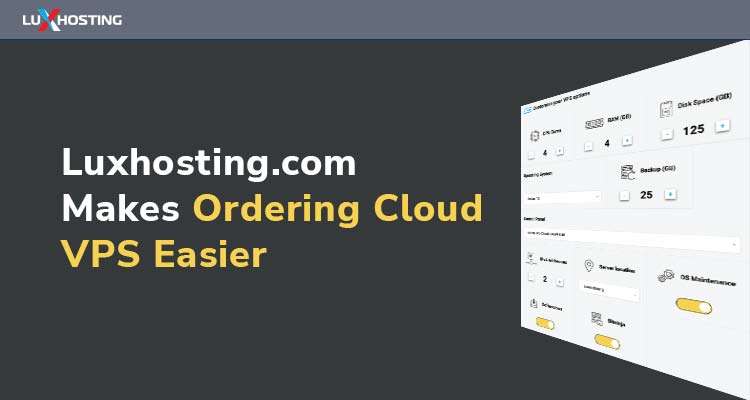Hard disk drives (HDDs) were the primary storage options for many years until the arrival of SSD storage in 2009. This storage technology has gained immense popularity since, and web hosting is adopting it too. What is the meaning of SSD hosting? And can it impact your website's performance? How are SSDs different from HDDs? And when should you pick the other option? This article will delve into these important questions. Proper SSD hosting is a vital requirement for a fast and effective website. Let's discuss the meaning of solid-state drive technology and why to use SSDs. We'll also evaluate Kingston SSDs and give you a fair verdict. Keep reading to learn more about how this new technology can significantly impact web hosting.
What is Solid-State Drive Hosting?
Solid-state drives are a type of storage technology with no moving parts. Although they are priced higher than hard drives, Kingston SSDs are more reliable and durable. They have low latency levels, meaning they can retrieve your files and serve them to your website visitors faster. Most recent computers are fitted with solid-state drives. Similarly, you can fit SSD drives into your web servers. Your web files are typically stored on SSDs like they can be stored on a hard drive.
Differences Between Solid-State Drives and Hard-Disk Drives

We Use Kingston SSDs - 5 Benefits for Your Servers
Why use SSDs? HDDs and SSDs are associated with information storage, but writing capacity, reading of data, and processing takes place differently. These specificities play a crucial role in determining your best model.
Hard disk drive (HDD)
The hard-disk drive (HDD) is a non-volatile memory, meaning the stored data is preserved even when the system has no power supply. Therefore, HDDs are a suitable component for many desktops, notebooks, and servers. As its name suggests, hard drives have a physical component called a platter. It comprises aluminium, glass, or ceramic hard disks covered with a magnetic film. There is an axis in the disk's centre to help the component turn at high speeds. The mechanical arm has a head comprising magnets positioned one nanometre from the magnetic film to record and read data.
Solid-state drive (SSD)
On the other hand, SSDs comprise integrated circuits rather than disks. Since it has no moving parts, it's usually faster and quieter than HDDs. SSDs are also non-volatile, and data is recorded in flash memory. Since it's more compact, solid-state drives are preferred for smartphones, tablets, and laptops. SSDs store data in a semiconductor memory or RAM. The flash memory cell comprises the control gate (controller), where the electric load can be applied and communication with the computer takes place. The voltage reaches the floating gate, which saves data and remains unaltered.
"The advantage of SSDs is that it's possible to read particular data many times in the same manner".
Is Kingston a Good SSD?
Is Kingston a good SSD? Yes, these SSDs are manufactured from premium-quality materials and are some of the best in the market. Kingston SSDs are also available in NVMe and SATA models to offer multiple storage solutions suitable for new computer builds, system builders, and servers.
5 Benefits of SSD-Powered Servers
Now that you understand why SSDs are advantageous as data centres and server technologies, let's discuss some of their benefits.

We Use Kingston SSDs - 5 Benefits for Your Servers
1. Hardware durability and reliability
SSDs are more resistant as they have no mechanical or physical parts, meaning they are free from all sorts of distortions. Furthermore, having no moving parts means the storage system will experience minimal breakage and wear and tear. Therefore, SSDs are more durable, reliable, and efficient. It's also easy to retrieve lost files unless data is overlaid or the formatting is not safely executed.
2. Enhanced speed
The main advantage of SSDs is speed. SSDs increase the time agility of data access, making it ideal for pages that execute an enormous number of requests to the database or server. The response time of HDD hosting is around 20 times longer as its performance is conditioned to the disk rotation speed. For instance, desktops' speeds usually range from around 5,400 RPMs to 7,200 RPMs. For web servers, these rotations per minute can reach 15,000, allowing data to be accessible at 20 milliseconds after the user has placed a request. In solid-state drives, this value decreases to 0.2 milliseconds. An SSD utilizes flash memory to save data – therefore, it executes functions 300% times than the hard-disk drive. These functions comprise response time, file transfer, read & write time, etc. It takes around 10 to 13 seconds to boost solid-state drives, and they can operate at improved performance even in warm environments.
3. Minimal power consumption
A solid-state drive is lighter and has an average power consumption of less than 2W. Therefore, it significantly decreases power consumption to save energy, making it eco-friendlier than its HDD counterparts. It also keeps degradation to the minimum, reducing the need to replace various components – consequently reducing the costs of hosting your website.
4. Optimized performance and better customer experience
SSD storage technology usually reads and writes data directly from the storage system. Kingston SSDs don't have magnetic disks or rotating heads, and their rate of reading and writing information is very high – resulting in enhanced SSD performance. Speed is a crucial requirement to ensure an excellent customer experience. A website's speed is essential for your brand's credibility among the users and its SEO (search engine optimization) strategy, as it influences your brand's visibility and search engine results. How? For instance, if your website takes a long time to process information, the users can give up using it and look for a different website instead. This behaviour often affects your page's ranking in various search engines.
5. Increased uptime
Uptime refers to the period when your website is online or the availability of information for users to access. An SSD is designed to optimize uptime because it has a higher rate of reading data. More uptime is vital for websites, especially those with high traffic. Hard drives may be unable to accommodate high requests demand, which could inevitably lead to the application's collapse. As a result, it could compromise your brand's credibility, especially with eCommerce platforms.
The Bottom Line
Why use SSDs? We hope you now have your answer. Web servers that handle high volumes of customer requests should pick SSD storage. These websites include eCommerce platforms, digital service platforms, applications with databases, and high-traffic sites. We're in the digital transformation era where online users demand agility in access and high volumes of information. Therefore, having a website with optimal performance can make an enormous difference. These aspects indicate the importance of SSD hosting technology as it increases your page speed. Kingston SSDs can help maintain your site's availability and increase its credibility among its users. To place an order on these storage systems, visit LuxHosting. We are a leading hosting service provider with powerful servers, outstanding customer support, high uptime, and custom plans. Visit our website to learn about the SSD-based models we have in store for you or contact us for a free consultation.



